Cameroon: A haven for refugees from conflict in the Central African Republic
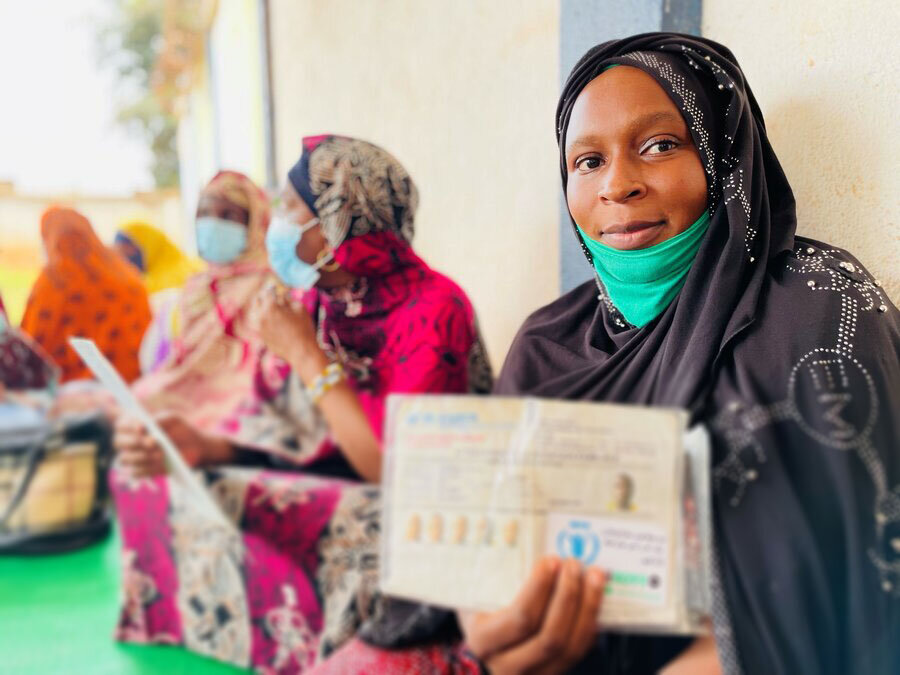
“Go get the children, we have to leave, they will kill us,” shouted Ousmane, Djanabou’s husband in the middle of the night, in December 2013. Having woken up abruptly, she gathered their four children, took the first bag of clothes she could find and got into her husband's car. That night, Djanabou’s life was to change forever.
Djanabou and her family had no choice but to leave their home Bangui, the capital of the Central African Republic. On the road fleeing her hometown, cradle of a previously happy life, the muffled sounds of gunfire echoed through the screams and cries. Her husband continued to drive silently; their survival depended on it.
“We were shot at in the car, I was afraid we wouldn't make it out alive,” she says, with tears in her eyes. It has been almost eight years since that fateful night, but she still remembers every detail of the narrow escape.
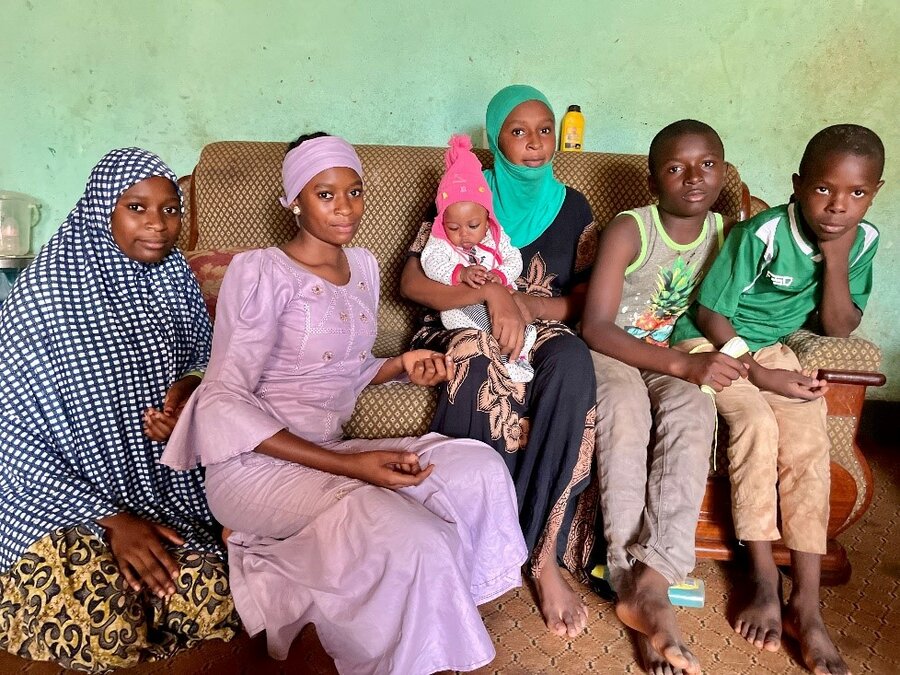
For years now, CAR civilians have continued to be victims of violence and abuses that have left thousands dead and injured. More than 290,000 Central Africans, like Djanabou and her family, have fled the fighting to the North, East and Adamawa regions of Cameroon, forced to abandon their homes, land and livelihoods.
Djanabou and her family found refuge in Ngaoundere in Adamawa.
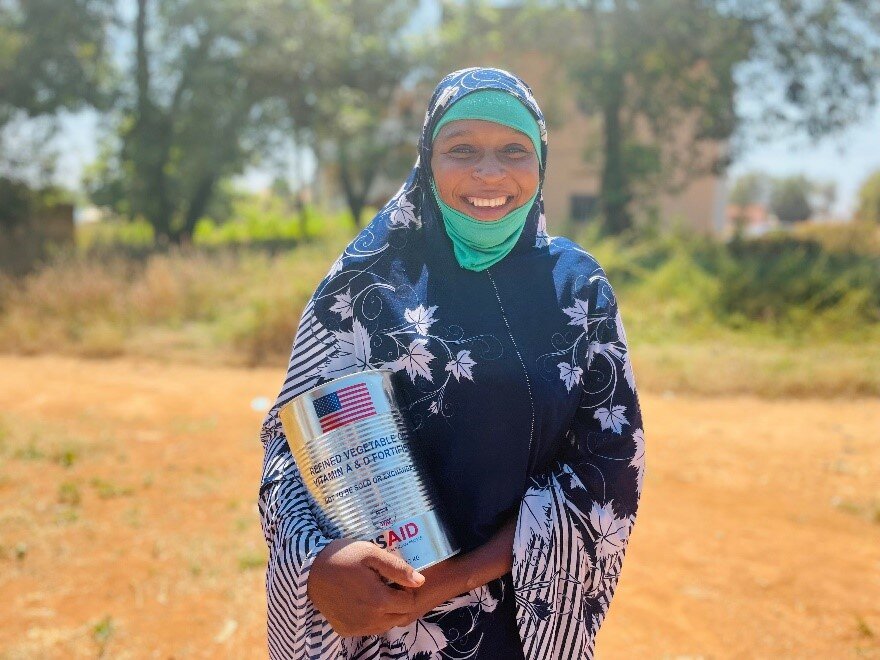
Having abandoned their belongings, by 2016 the family were enrolled in WFP’s cash-based transfer programme which allows them to cover basic food needs in local markets. “We suffered too much from hunger after we left home,” says Djanabou as she finishes cooking jollof rice, a local delicacy with smoked fish, beef and seasonings, all mixed in a pot.
Her family, who used to be traders back at home, managed to save whatever was left from the monthly cash assistance the received once basic food needs were covered. With that saving, they were able to buy a table on which they began selling oil, peanuts and cornflour. With payback from this activity, they are able support their children’s education and health.
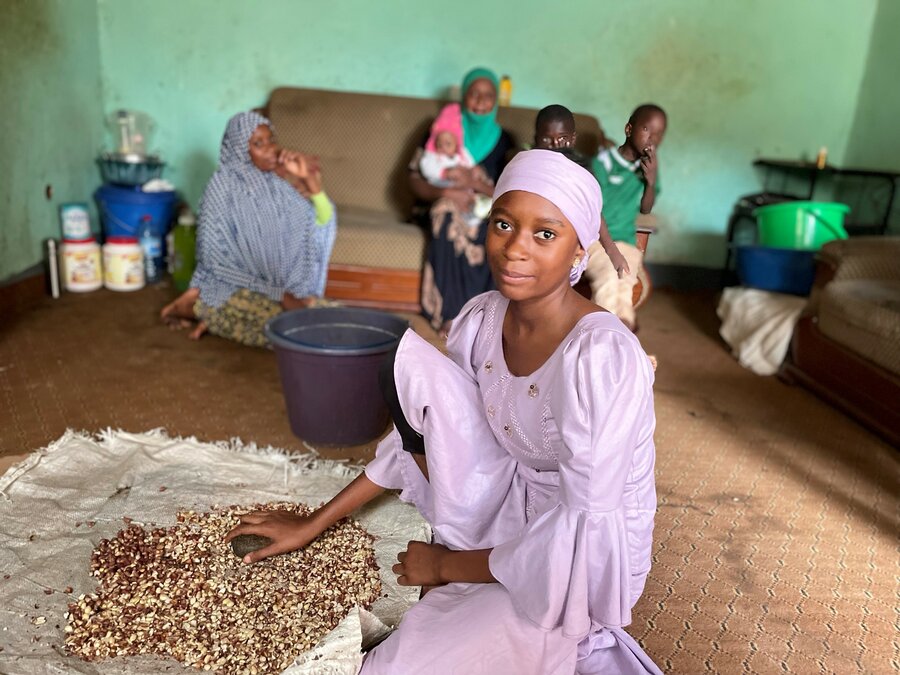
Djanabou was four months pregnant when she lost her husband to an illness. The mother of four ended up selling their food supplies and stuff from the small business to pay off the hospital debts.
Now, she is dependent on her 14-year-old daughter who engages in the sales of peanuts after school, earning barely US1 a week – though it's such a small amount, Djanabou hopes to save so she can resume trading flour and peanuts, once her medical debts are paid off.
Hunger continues to be a problem as more and more people are uprooted in CAR. More than one in three refugee children under the age of 5 suffers chronic malnutrition. Meanwhile, funding to support humanitarian activities has declined significantly. In 2019, WFP was forced to cut its cash assistance by half. By November they had stopped altogether.
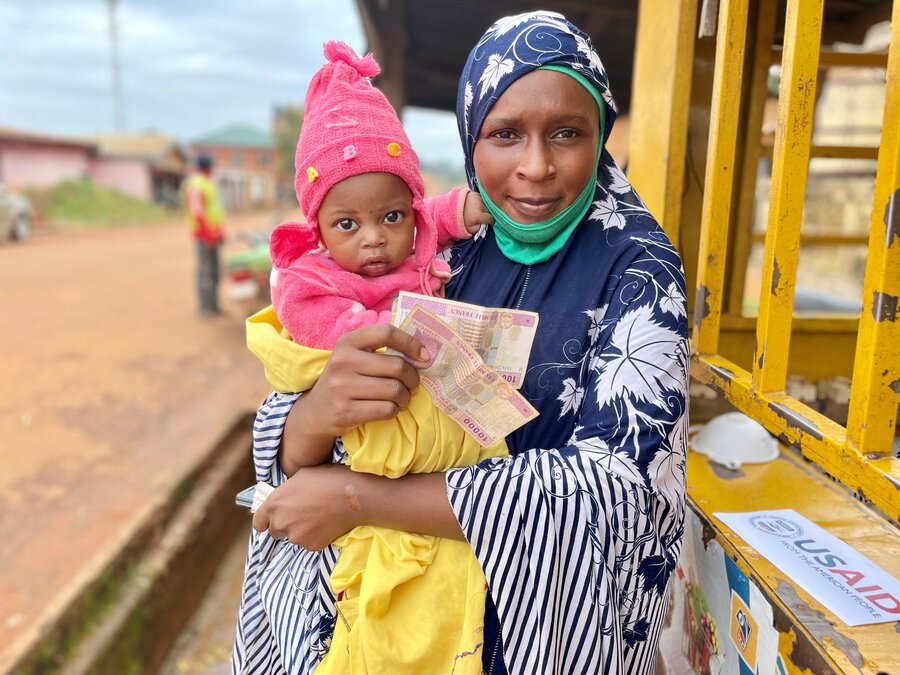
This risks rolling back the progress made in the fight against hunger in these regions, especially for someone like Djanabou, who finds herself affected by poor nutrition and no longer able to breastfeed her 4-month-old daughter. “With the money from the cash transfers, I could buy milk powder for my daughter,” she says. “Now that the money is reduced, I can hardly do so.”
WFP cash assistance to Central African refugees in the East and Adamawa regions is supported by the generous donations of Germany, Ireland, Denmark, Iceland and the United States.

